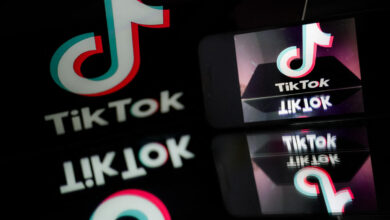
Apple may be on the hook for a fine of up to 10 percent of its global annual revenue following a regulatory action from European Union officials. In the preliminary findings of its investigation, the bloc says the company breached Digital Markets Act (DMA) rules by failing to let App Store developers freely tell users about alternate payment options away from Apple’s ecosystem.
If Apple is found guilty, it could face a fine of tens of billions of dollars under the DMA’s severe penalties. Should a DMA violation be repeated, fines can reach up to 20 percent of global annual revenue.
The European Commission, the EU’s executive branch, opened this investigation into Apple in March. From that start date, it has 12 months to finalize the preliminary findings. This also marks the first regulatory action under the DMA, as The Financial Times notes.
The EC preliminarily found that Apple has broken so-called anti-steering rules. Major tech companies that are subject to the DMA are required to let third-party developers inform users about alternative ways to make purchases without charging developers to do so.
In their preliminary findings, officials determined that none of Apple’s updated terms let developers freely nudge customers toward alternative payment options. The EC notes that Apple doesn’t let developers tell users how much less they could pay elsewhere.
Apple by and large only allows developers to use link-outs, the Commission said — in other words, they can include a link to a web page to carry out a payment. “The link-out process is subject to several restrictions imposed by Apple that prevent app developers from communicating, promoting offers and concluding contracts through the distribution channel of their choice,” the EC said.
Regulators added that although Apple is entitled to receive a payment for helping developers find new customers through the App Store, “the fees charged by Apple go beyond what is strictly necessary for such remuneration.” For example, they point out, developers have to pay Apple a fee for any purchase of digital services or goods that someone makes within seven days of an app link-out.
Developers have to fork over up to 30 percent of any purchases made via the App Store (Google charges similar fees for Play Store purchases). As such, developers are able to offer consumers cheaper prices if they make purchases away from the App Store.
In 2020, Epic Games informed Fortnite players through the game’s mobile apps that they could pay less for V-Bucks by purchasing the in-game currency directly from the developer. Apple and Google swiftly booted the game off their app marketplaces, prompting legal battles that are still ongoing. However, thanks to the DMA, Epic plans to launch its own mobile app store in the EU and re-release a mobile version of Fortnite in the bloc later this year.
“Throughout the past several months, Apple has made a number of changes to comply with the DMA in response to feedback from developers and the European Commission,” Apple told Engadget in a statement. “We are confident our plan complies with the law, and estimate more than 99 percent of developers would pay the same or less in fees to Apple under the new business terms we created. All developers doing business in the EU on the App Store have the opportunity to utilize the capabilities that we have introduced, including the ability to direct app users to the web to complete purchases at a very competitive rate. As we have done routinely, we will continue to listen and engage with the European Commission.”
The company recently found itself in hot water with the EU on a similar front — the bloc fined it €1.8 billion ($1.95 billion) earlier this year over violations of anti-steering rules. The Commission claimed that Apple prohibited third-party developers of music streaming apps from telling iOS users that they could pay less for subscriptions if they sign up away from Apple’s ecosystem. Apple has formally challenged the fine.
The EC has also opened a fresh investigation into Apple over another potential DMA violation. The bloc has taken issue with new fees Apple is charging developers “to access some of the new features enabled by the DMA,” such as the ability to offer a third-party app marketplace as well as app downloads through other means, such as the web. The EC notes that Apple still allows developers to keep operating under a previous agreement, which doesn’t let them make use of alternative distribution channels.
Devs who sign up for the new terms are subject to what Apple calls a core technology fee. This equates to a payment of €0.50 per user per year after the first million users. The fee, which Apple announced in January, applies even to downloads from third-party app marketplaces. Many of Apple’s rivals slammed the company over the new terms (as well as over updated rules for third-party payments in the US). Last month, Apple granted non-commercial and small developers an exemption from the core technology fee.
The EC is also looking into whether Apple is making it too complicated for users to install third-party app marketplaces and apps. The third part of the investigation concerns “the eligibility requirements for developers related to the ability to offer alternative app stores or directly distribute apps from the web on iPhones,” such as needing to have a developer account that’s in good standing.
Meanwhile, Apple said on Friday that it was delaying the rollout of Apple Intelligence — the company’s name for a suite of generative AI features that will debut in iOS 18 — and some other features in the EU. “We are concerned that the interoperability requirements of the DMA could force us to compromise the integrity of our products in ways that risk user privacy and data security,” the company told Bloomberg.
Update 6/24 10:19AM ET: Added Apple’s statement and details about the core technology fee exemption.
Source link





